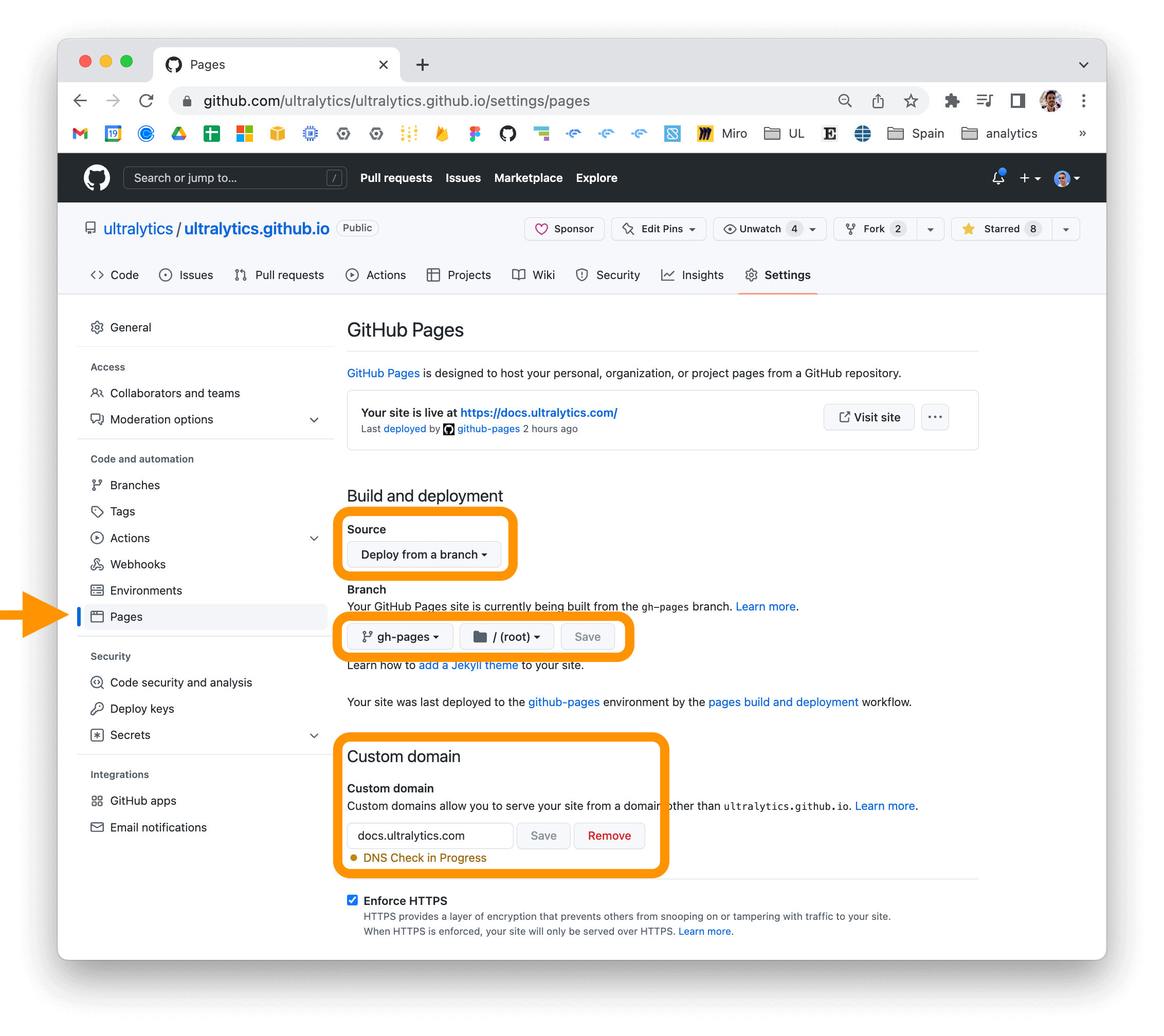Welcome to the Ultralytics Handbook repository! This repository houses the source files for the official Ultralytics Handbook - your comprehensive guide to our mission, vision, values, and operational practices. Built with MkDocs Material, the Handbook is continuously deployed via GitHub Pages to handbook.ultralytics.com.
This Handbook serves as a living document, evolving alongside Ultralytics' growth. It aims to align team members, contributors, and the wider community with the core principles guiding our work in artificial intelligence (AI) and computer vision. Whether you're new to Ultralytics or a seasoned team member, this resource provides insights into everything from our company philosophy to detailed workflows and operational processes, including our approach to machine learning operations (MLOps).
New team members? Start with our Onboarding Guide for your first 90 days roadmap.
To build and develop the Handbook locally, install dependencies:
pip install mkdocs-material mkdocs-ultralytics-pluginThis installs MkDocs, the MkDocs Material theme, and our custom plugin for building the documentation site.
Build and serve the Handbook locally with live reload:
mkdocs serveThe site will be available at http://127.0.0.1:8000. Changes to source files trigger automatic rebuilds.
mkdocs serve- Start development server with live reloadmkdocs build- Build static site tosite/directorymkdocs gh-deploy- Deploy to GitHub Pages
The Handbook automatically deploys to handbook.ultralytics.com via GitHub Actions when changes are pushed to the main branch. Manual deployment:
mkdocs gh-deployThis builds the site and pushes to the gh-pages branch.
We welcome contributions to the Ultralytics Handbook! Your input helps keep our documentation accurate, comprehensive, and useful.
- Fork the repository and create a feature branch
- Make your changes to Markdown files in
docs/en/ - Test locally with
mkdocs serve - Submit a pull request with clear description of changes
- Follow our style guide (consistent with existing pages)
- Use clear, concise language aligned with the handbook's professional tone
- Follow the existing structure and formatting (120-character lines, emoji usage)
- Include proper frontmatter (description and keywords) on all pages
- Test all internal links and ensure proper navigation
- Use tables, admonitions, and formatting consistently with other pages
See our Contributing Guide for detailed information.
handbook/
├── docs/
│ ├── en/ # English documentation
│ │ ├── index.md # Homepage
│ │ ├── introduction.md # Handbook introduction
│ │ ├── mission-vision-values/ # Company foundation
│ │ ├── finance/ # Financial policies
│ │ ├── tools/ # Hardware & software
│ │ ├── people/ # HR policies
│ │ ├── workflows/ # Development processes
│ │ ├── contributions/ # Community guidelines
│ │ ├── goals/ # OKRs and company goals
│ │ ├── faq/ # Common questions
│ │ ├── legal/ # Legal & compliance
│ │ └── security/ # Security policies
│ └── overrides/ # Theme customizations
├── .github/
│ └── workflows/ # CI/CD automation
├── mkdocs.yml # MkDocs configuration
├── pyproject.toml # Python project config
├── requirements.txt # Python dependencies
└── README.md # This file
- MkDocs - Static site generator
- Material for MkDocs - Modern documentation theme
- MkDocs Ultralytics Plugin - Custom features and integrations
- GitHub Pages - Hosting and deployment
- GitHub Actions - CI/CD automation
The Ultralytics Handbook is distributed under two licenses:
- AGPL-3.0 License - For academic research and open-source projects
- Enterprise License - For commercial applications requiring proprietary integration
- Issues & Bugs: GitHub Issues
- Discussions: GitHub Discussions
- Discord: Join Server
- Ultralytics Website - Company information
- YOLO Documentation - Technical documentation for YOLO models
- GitHub Repository - Main codebase
- Trust Center - Security documentation















